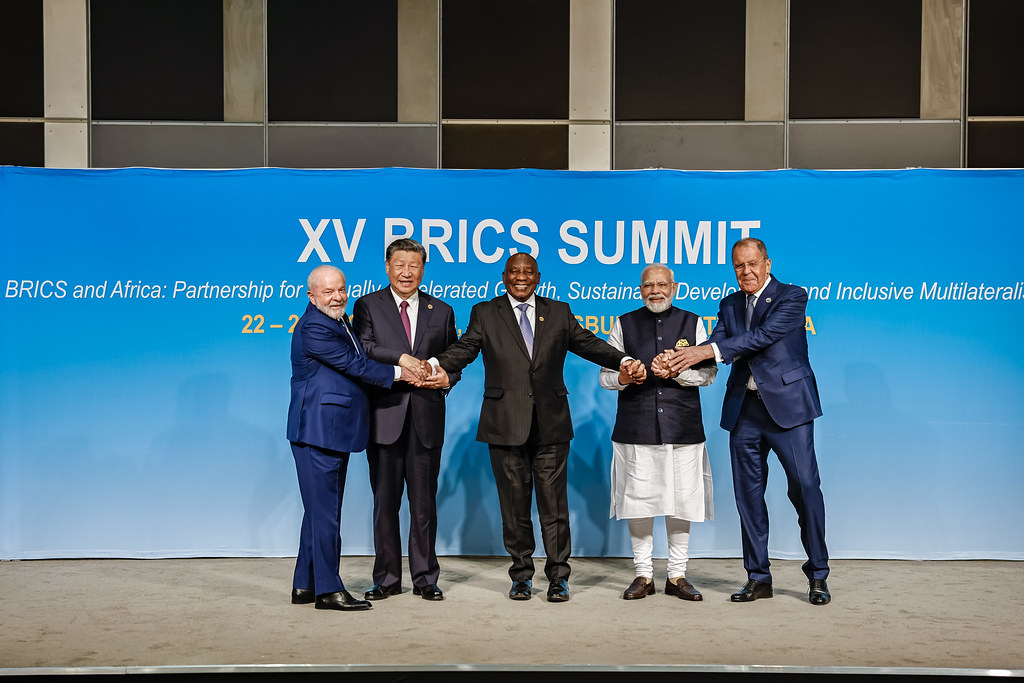All the dreams of the BRICS

Projects, unknowns and scenarios after the last BRICS meeting. The analysis of Mario Lettieri, former Undersecretary of the Economy, and Paolo Raimondi, economist
The BRICS were born 18 years ago not out of a whim of their governments, but as a necessary and indispensable response to the great financial crisis and the illusions of a unipolar world, under US leadership. The reason for their birth still persists and with more force. Unfortunately, there are economic experts and politicians who owl about their resilience or even wish they would fail. They have also done so with regard to the XV Summit in Johannesburg.
In the last three decades the world has changed profoundly. New economic players have emerged, starting with China and India, who intend to affect and change the international balance of power. The BRICS economic and political coordination group is just one of these new emerging poles. They do not intend to "challenge" the West, as the media claim, but to help create a new, more equitable international order.
It is therefore no coincidence that the Johannesburg Final Declaration highlights "the commitment to inclusive multilateralism and respect for international law, including the purposes and principles enshrined in the Charter of the United Nations as an indispensable cornerstone, and the central role of the United Nations in an international system in which sovereign states cooperate to maintain peace and security, to promote sustainable development, to ensure the promotion and protection of democracy, human rights and fundamental freedoms for all and for promote cooperation based on the spirit of solidarity, mutual respect, justice and equality". Clear words.
Since, however, everything is valued in "money", a look at their economic weight in the world confirms their growth and their influence. There are obviously many different orientations and perceptions among the BRICS. A consolidated and growing figure is the use of local currencies in commerce.
There has been too much talk of the BRICS' intention to create their own circulating currency. That was never really on the agenda. They have operated a lot through local currencies. The Declaration encourages their use in international trade and financial transactions between the BRICS and their trading partners. The strengthening of banking networks and the possibility of making payments in local currencies are supported.
The real news is that they are now studying the creation of a unit of account, on the model of the European ECU before the entry into force of the euro. The Ecu was not a circulating currency but a system for promoting trade within the European Union and with other countries, preparing the process of monetary, political and institutional union in Europe. The fundamental role of the Ecu was destroyed in 1992 by the devastating speculative attacks against some currencies, including the pound and our lira. Europe is still paying for the negative effects of that sabotage today.
The BRICS will have to take into consideration what happened to the ECU and prepare effective measures to defend against speculation. They show that they are aware of this when they state that «the Contingent Reserve Arrangement (CRA) continues to be an important mechanism for mitigating the effects of a crisis situation, complementing existing international financial and monetary agreements and contributing to strengthening the global financial safety net» .
The commitment to a new international economic order is highlighted in the explicit request for "a reform of the Bretton Woods institutions, including a greater role for emerging markets and developing countries".
The New Development Bank is always the center and engine of the activities. To respond to those who continue to speak of them as an informal club without institutions, the Declaration instead recognizes "the progress made in the institutional development of the BRICS and that their cooperation must accommodate changes and keep pace with the times".
Finally, and even more important, is the announcement of expanding membership. We have decided, it is said, to invite the Argentine Republic, the Arab Republic of Egypt, the Federal Democratic Republic of Ethiopia, the Islamic Republic of Iran, the Kingdom of Saudi Arabia and the United Arab Emirates to become members at full title of the BRICS on January 1, 2024". «We also welcome the participation in the meetings of 26 other emerging countries as «Friends of the BRICS». Can the EU be interested?
This is a machine translation from Italian language of a post published on Start Magazine at the URL https://www.startmag.it/economia/tutti-i-sogni-dei-brics/ on Sun, 03 Sep 2023 06:37:35 +0000.
